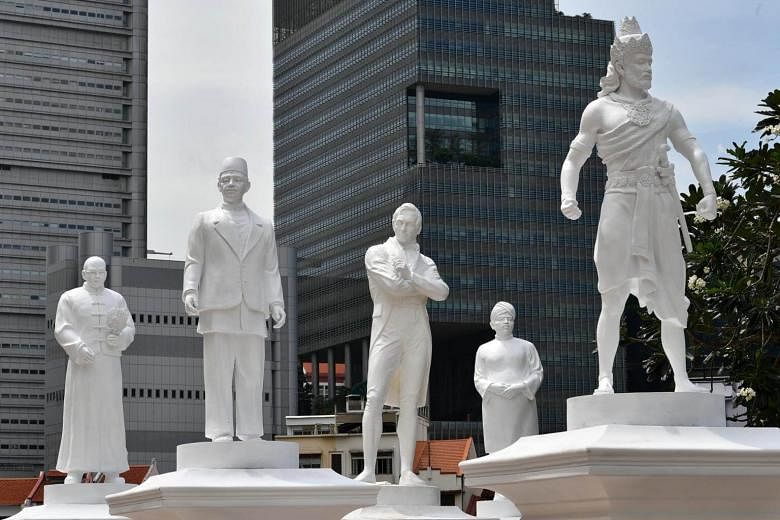It is very odd to call the office in charge of the celebrations of Singapore's 720-year history the Bicentennial Office (Why Raffles flanked by statues of only men, by Singapore Bicentennial Office; Jan 12).
Wouldn't "septcentennial" be a better approximation of the period under coverage for the festivities?
Or was this extended historical framing a mere reaction to criticism that the office was glorifying colonial imperialism, and that we should instead look further back at the time when local affairs were managed by the locals, never mind the fact that most of them were similarly oppressed subjects of absolute rule?
This begs the question: Was Sang Nila Utama any more local than Sir Stamford Raffles?
After all, the Srivijayan prince was born and bred in Palembang, Sumatra, and not on the island which he founded as the kingdom of Singapura.
Ditto the Majapahit and Siamese kingdoms, which reportedly influenced our island's evolution as part of Greater India between the 14th and 16th centuries.
It seems that the public sector, in managing contentious public opinions, has leaned increasingly towards mixing these all up in the name of being "inclusive" in recent years, resulting in a convolution and dilution of standards across the board.
The Bicentennial Office should focus on celebrating the founding of modern Singapore by Raffles and its evolution as a global city since then.
And there is absolutely nothing wrong with this approach as history is often framed and studied according to periods.
While Singapore did enjoy golden epochs centuries before 1819, few would also dispute that 1819 - precisely 200 years ago and known aptly as a bicentennial - represents a major turning point in our nation's modern history.
Our island was transformed into a free port which subsequently rode the wave of the first industrial revolution and attracted migrants from across the world.
Today's Singapore is built on the legacy of British institutions and systems - which the founding leaders of our independent and sovereign city-state adapted to suit our realities and needs - and not the absolute monarchies of ancient Indianised and Malay kingdoms.
Whatever one's grievances with the oppressive evils of colonialism, imperialism and totalitarianism, history should be assessed fairly and squarely via dispassionate minds and hearts.
Facts must always remain facts without prejudice in a multicultural metropolis.
Toh Cheng Seong

